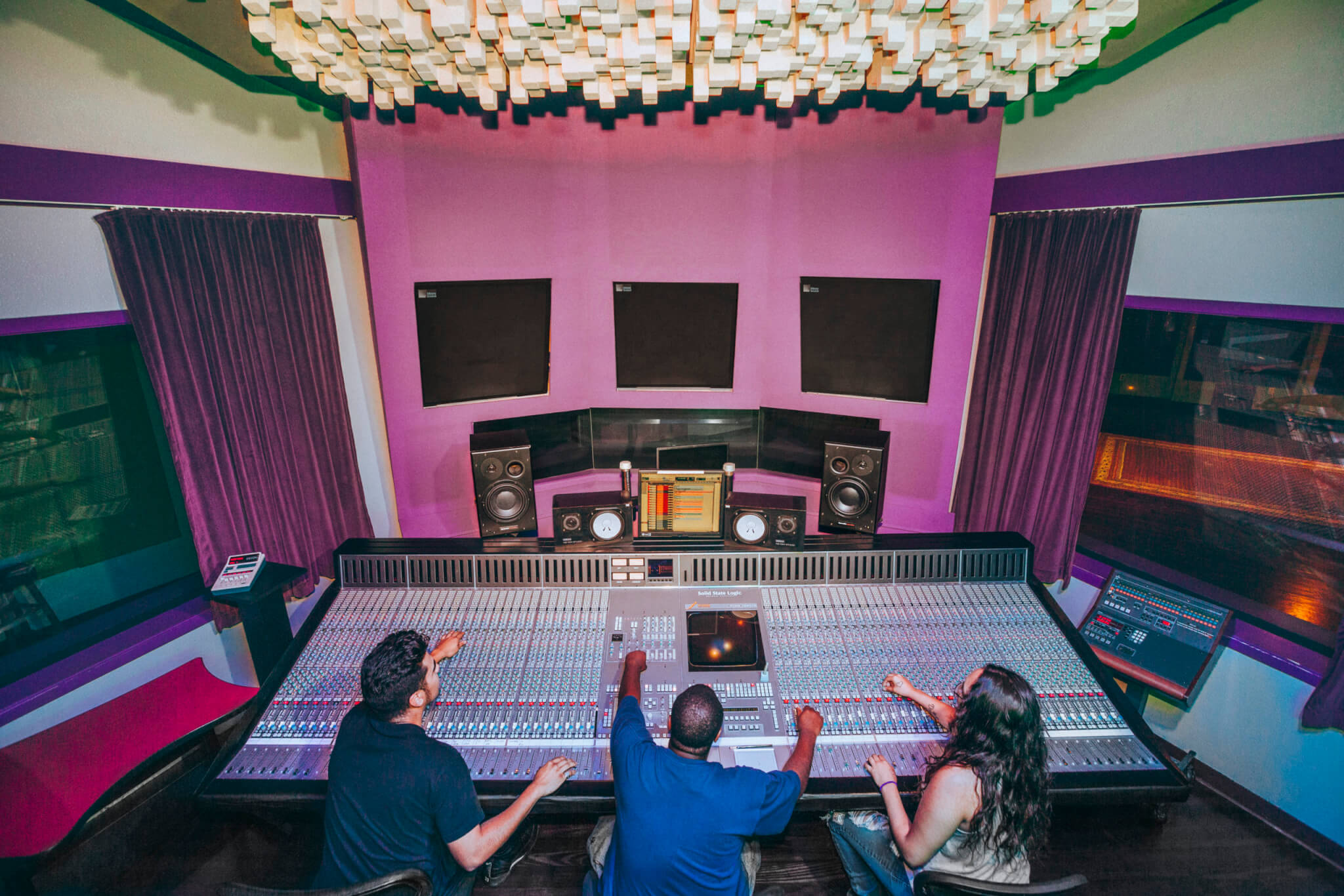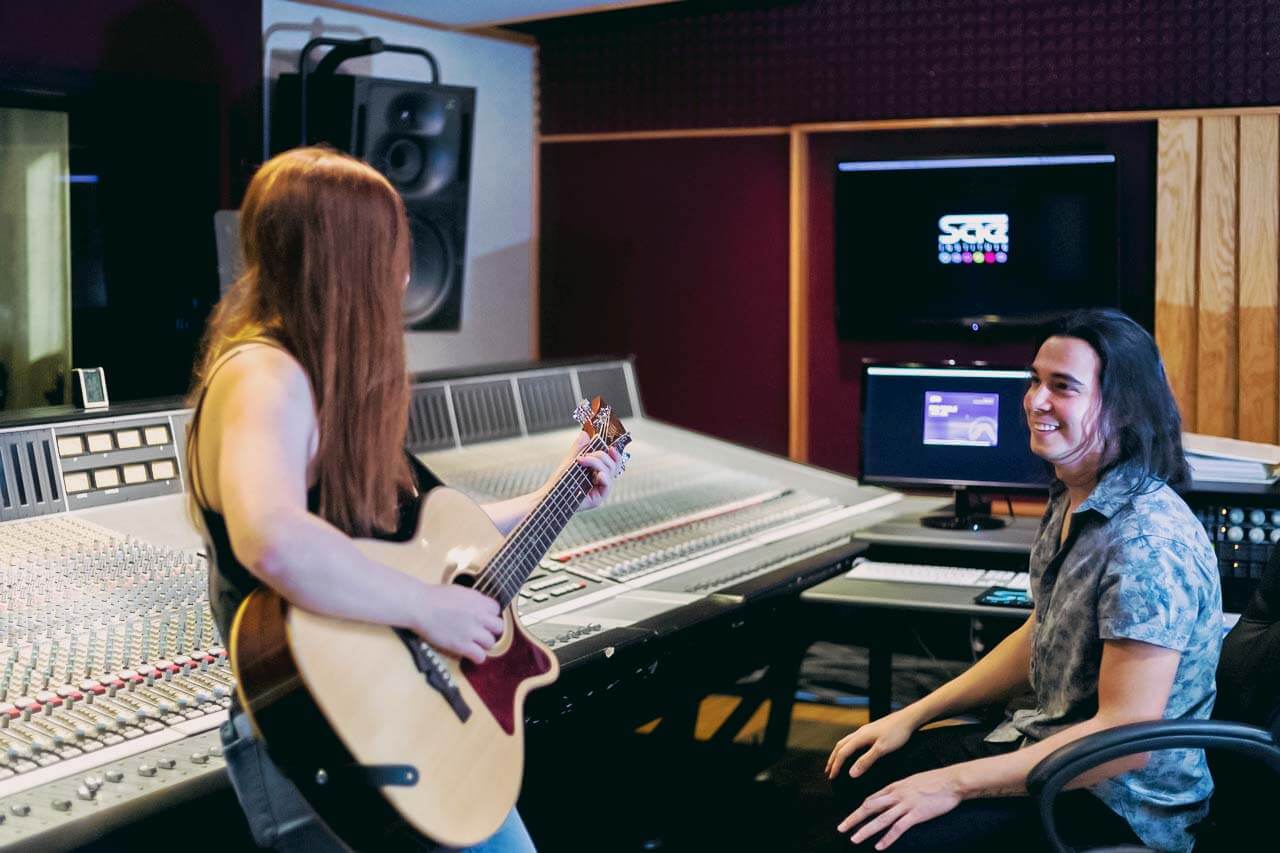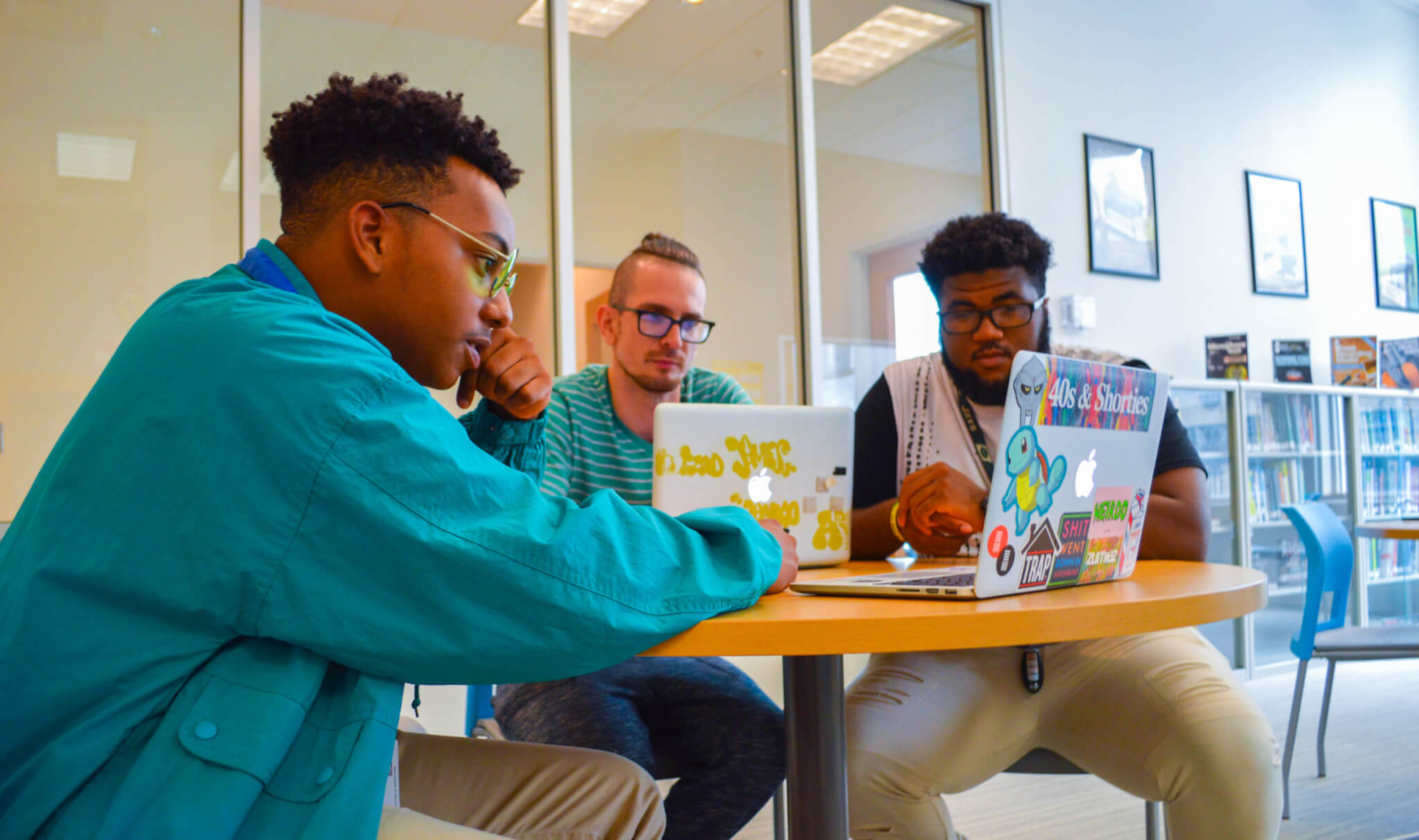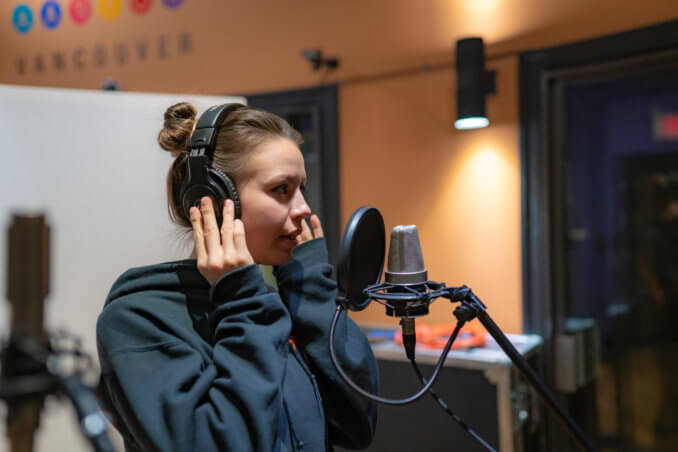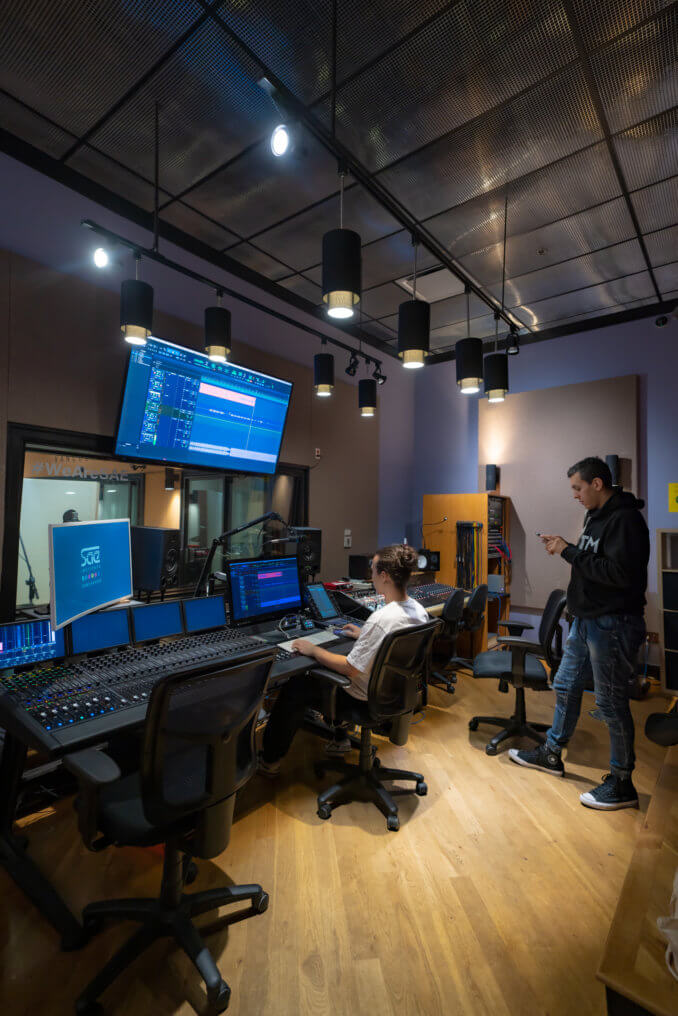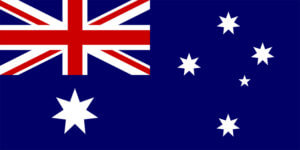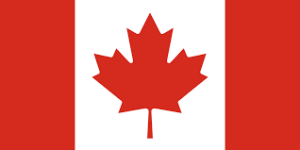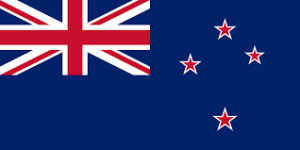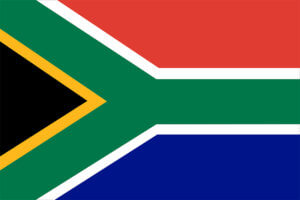International Student Guide
New International Student Orientation
SAE Institute Vancouver new international students are invited to participate in the mandatory New International Student Orientation event. Topics such as student services, studying in Canada and SAE Institute, getting settled and living in Vancouver, and staying healthy and safe will be included. More information will be emailed to admitted students before classes begin.
Pre-Departure & Arriving in Canada
Carry your important documents with you at all times, and do not put them in your checked luggage. You may not be allowed into Canada if any of your documents are missing or any of the information on your application or letters of reference is incorrect.
There is no set time frame for you to arrive in Canada before you begin your studies. You should just give yourself a reasonable amount of time to prepare before you start studying. You are not allowed to work on or off campus until you begin your studies in Canada.
- A valid passport (or other travel document)
- A valid Visitor Visa or eTA*
- A valid Study Permit or Port of Entry (POE) Letter of Introduction
- New students require a Letter of Acceptance; continuing students must provide a Confirmation of Enrolment form.
- Proof of financial support for yourself and any other family members who may come with you to Canada.*
- Medical exam results, in some cases only (Find out if you need a medical exam)
- Health Insurance: International students in British Columbia must have valid health insurance for the first 3 months in Canada.
- Information about where you plan to live (or stay temporarily) in Canada, such as the address of the accommodation
- Any other documents you were instructed to bring such as a letter of reference
*Not required for US citizens.
- Accommodation: Secure housing before arrival. Options include homestays, rental listings, and student housing.
- Know Your Cost of Living: The cost of living in Vancouver is relatively high by global and Canadian standards, though this can vary considerably based on your personal situation. For more detailed information to help plan your budget visit:
EduCanada – Prepare your budget to study in Canada
- Banking: Research Canadian bank accounts and consider opening one upon arrival. Several major Canadian banks offer student accounts tailored for international students. Here are some options you might consider: ScotiaBank, CIBC, RBC Royal Bank, TD Canada Trust and BMO Bank of Montreal.
- Currency: Have some Canadian cash for initial expenses. Most places accept credit and debit cards.
- Climate-Appropriate Clothing: Vancouver has a mild coastal climate, but it rains frequently—bring waterproof clothing.
- Electronics & Adaptors: Canada uses 120V power outlets (Type A/B plugs).
- Medications & Prescriptions: Carry necessary medications along with a doctor’s note or prescription. Please see Canada’s border regulations for medications.
- Documentation: Carry a copy of your prescription and a doctor’s note explaining the necessity of the medication. This is particularly important for medications that require special handling or are administered via medical devices.
- Packaging: Keep all medications in their original, labeled containers. This helps in easy identification and verification at border checkpoints.
- Declaration: Always declare all medications to customs officials when entering Canada. Failure to do so can result in penalties or confiscation of the medication.
- Medical Devices: If you’re bringing medical devices for personal use, ensure they are clearly intended for personal use and do not require professional assistance to operate.
Canada Border Services (CBSA): Upon arrival, present your study permit approval letter, passport, visa/eTA, and proof of funds to the Canada Border Services Agency (CBSA) officer. Verify that your study permit is issued correctly before leaving.
- Public Transit: Vancouver’s SkyTrain and bus system are efficient ways to travel. Plan your trip using TransLink. The nearest station to SAE Vancouver is Lonsdale Quay Station on Vancouver’s North Shore.
- Taxis & Rideshares: Uber, Lyft, and taxis are available from the airport. YVR transportation options.
- If you Plan to Drive: Your driver’s licence and driving insurance records are required.
- BC Newcomers’ Guide: The B.C. Newcomers’ Guide will help you settle into B.C. quickly and easily. It is available in English and seven other languages.
- Health Insurance Enrolment: Apply for BC MSP as soon as possible. How to apply for MSP.
- Student Services & Orientation: Contact SAE Vancouver’s Student Success team for guidance on your first steps, including campus orientation and academic support.
- Mobile SIM & Internet: Consider getting a Canadian SIM card for easier communication.
Review the following links for information from the Government of Canada to help you prepare for your trip:
A study permit is usually valid for the length of your study program, plus an extra 90 days. The 90 days let you either
- prepare to leave Canada or
- apply to extend your stay
For additional support, contact SAE Vancouver’s Student Success team.
Health Insurance & MSP Coverage
The Medical Services Plan (MSP) is the health insurance plan of the Government of British Columbia. The MSP pays for medically required services, like doctor’s appointments, surgeries, some medical exams, and most hospital-related services in Canada.
Under the Medicare Protection Act, enrolment with the MSP is mandatory for all eligible residents of British Columbia (people living in the province) and their dependents. That includes international students living in B.C., who hold a valid study permit for at least six months and their dependents (spouse and children). Therefore, international students must apply for MSP as soon as they arrive In British Columbia.
In British Columbia, international students must have private medical insurance for the first three months after their arrival, as MSP (Medical Services Plan) has a waiting period before coverage begins.
International students must submit proof of adequate medical insurance coverage before being permitted to enrol in a program at SAE and must maintain medical insurance coverage at all times while a student at SAE.
- Private Coverage – International students can obtain temporary health insurance from providers such as Guard.me, StudyInsured, or TuGo to cover the MSP waiting period.
- Arrival in BC – Students should immediately apply for MSP, as processing takes time.
- First 3 Months – Students must have private medical insurance to cover any medical needs during this period.
- Month 4 and Beyond – If approved, MSP coverage begins.

International students and their dependents living in British Columbia for six (6) months or longer are required under the Medicare Protection Act to apply for MSP. Applying for MSP is the student’s responsibility, and they must submit the MSP application as soon as they arrive in BC.
Required documents to submit an MSP application:
- Applicant’s full name, date of birth, and gender information.
- Copy of a valid study permit (main applicant).
- Copy of a valid open work permit, study permit or visitor permit (dependents, accompanying spouse or child) – if applicable.
- Marriage certificate or divorce decree – if applicable.
- Residential and mailing address in British Columbia.
-
Phone number – if available.
We encourage all international students to submit an online application. You may also apply in person or by mail as an alternative.
Register for MSP as soon as you arrive in BC. It will take three months for your coverage to start (the month in which you arrive in BC plus two full calendar months).
Your MSP coverage and expiry date will match your status in Canada (study permit) validity. Every time you extend your study permit or apply for a different status in Canada (i.e., post-graduation work permit), you will need to update your MSP account.
If you need to see a doctor and your BC Services Card has not arrived you might have to pay at the time you receive your health care. Keep your receipts and request reimbursement from MSP once your card has arrived.
If you need urgent care, inpatient services (lab, radiology, or other procedures), or a visit to the emergency department in a hospital, please show a copy of your study permit to receive a reduced rate on services.
If you require non-emergency medical care outside of your doctor’s hours, there are walk-in clinics that you can visit by calling ahead to them.
The MSP costs $75.00 per month for study permit holders (subject to change); however, it is free of charge for the work permit and visitor permit holders. The monthly fee must be paid to the Government of B.C., and the monthly invoice will be issued by Revenue Services of B.C. You may visit Paying Your MSP Health Fee to learn more.
If you change your home address, change your name, add/remove dependents or leave Canada permanently, you need to inform MSP.
If you are an international student in maintained status (have applied to extend or change your immigration status in Canada), you may have temporary MSP coverage until a decision is made by Immigration, Refugees and Citizenship Canada (IRCC) on your application. To learn more, please visit Medical Services Plan coverage continues for people with maintained status.
Please visit the Health Fee for International Students Q&A for more information.
The MSP covers most medically required services, like doctor’s appointments, surgeries, some medical exams, and most hospital-related services in Canada. Please note that MSP doesn’t cover dental care, eye examinations for vision care, corrective lenses, prescription drugs, or travel.
When your application is processed, your MSP card, or BC Services Card (formerly known as “BC Care Card”), will be mailed to the address you provided in your application.
To use your MSP, you should show your BC Services Card (government-issued ID with your name and Personal Health Number) whenever seeking medical services at walk-in clinics or hospitals. It is recommended that people seek clinics for minor illnesses or injuries and hospitals for emergency medical care. To request help or an ambulance, call 911.
Health Insurance BC (HIBC): For MSP enrolment, cancelling coverage and other services.
Monday to Friday from 8:00 am to 4:30 am Pacific Standard Time.
- Lower Mainland: (604) 683-7151
- Elsewhere in B.C.: 1 (800) 663-7100 (toll-free)
- Email: [email protected]
Revenue Services of British Columbia (RSBC): For billing, payments and refund information.
Monday to Friday from 8:30 am to 4:30 am Pacific Standard Time.
- MSP 1-877-405-4909
- Health fee for international students 1-877-383-0016
- Email: [email protected]
If you will be living in BC for six months or longer you may be eligible for PharmaCare to cover some prescription drugs and designated medical supplies. Register for PharmaCare as soon as you get your BC Services Card.
- In Case of an Emergency: Call 911. Life-threatening situations (police, fire, or ambulance).
- HealthLink BC: Call 811 (free of charge) for provincial health information and advice. Registerednurses at HealthLink BC are available to residents of British Columbia any time of the day or night, every day of the year (24 hours a day, 7 days a week). Translation services are available in different languages.
- Here2Talk: Available 24/7 via an app, phone, and web. Here2Talk connects students with mental health support. All BC post-secondary institution students have access to free, confidential counselling and community referral services.
- Crisis Centre BC: Call 604-872-3311. The Crisis Centre of BC is a leader in crisis intervention and suicide prevention. As a non-profit organization, they are committed to providing help and hope to individuals, organizations, and communities.
- Medimap: For walk-in clinics nearby you.
- Regional health authorities around Metro Vancouver:
- Vancouver Coastal Health (Vancouver, West Vancouver, North Vancouver, Richmond, and more)
- Fraser Health (Burnaby, New Westminster, Port Moody, Coquitlam, Port Coquitlam, Surrey, Langley, and more)
Housing & Cost of Living
SAE Institute Vancouver does not provide student housing or placement services; the following information is provided as a reference to help you prepare and get started.
Welcome to Vancouver! Finding housing in this beautiful and diverse city can be a challenge, but with the right approach, you can secure a place that meets your needs. Here’s a guide to help you navigate the housing market.
We strongly suggest you read through our 12 following points, which can make your rental process easier:
Vancouver and its surrounding areas are composed of various neighbourhoods, each with its own unique character and price range. For students attending a college at SAE in North Vancouver, the following neighbourhoods are worth considering:
- North Vancouver: Conveniently located near campus, it offers easy access to nature, though it can be expensive.
- West Vancouver: Also close to campus, offers quiet neighbourhoods and ocean views but can be pricey.
- Downtown Vancouver: City living! Very accessible via public transportation.
- Kitsilano: Popular with students for its beaches, parks, and laid-back atmosphere.
- East Vancouver: More affordable and diverse, with good transit links. Artistic population with fun cafes and vintage shops.
- Burnaby: Slightly farther but often more affordable and still accessible by public transit.
Vancouver is one of Canada’s most expensive cities, so it’s crucial to set a realistic budget. Consider all costs, including rent, utilities, internet, groceries, transportation, and other personal expenses.
- Room in a shared house/apartment: $700 – $1,200 per month
- Studio/Bachelor apartment: $1,200 – $1,800 per month
- One-bedroom apartment: $1,500 – $2,800 per month
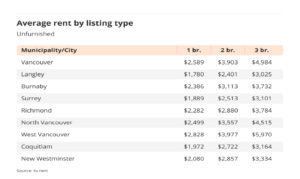
The cost of living varies by location and lifestyle choices. While studying in Canada may not be as expensive as in other countries like the U.S. or the U.K., it still represents a significant investment. As of December 2023, the proof of financial support required for a study permit application is $20,635 for one student. International students need to budget accordingly when planning to study in Canada, ensuring they have sufficient funds to cover living expenses in addition to tuition and fees.
Utilities can range from $50 to $150 depending on what is included in the rent, and transportation costs can vary between $50 and $200 based on the modes of transport used. Generally, it is wise to budget a minimum of $1,500 to $3,000 per month. Costs may increase if you are bringing family members with you.
Here are some online resources that may be helpful budget planning tools:
- Numbeo cost of living estimate
- Livingcost.org
- Budget Planner from the Government of Canada
The housing market in Vancouver is competitive. We recommend starting your search 3-1 month(s) before your planned move-in date.
SAE Vancouver students can explore comfortable and convenient housing options through VanMates, a trusted provider of student accommodations. VanMates offers fully furnished rental apartments, co-living spaces, and homestay arrangements designed for students and young professionals.
With flexible lease terms, modern amenities, and a community-oriented living experience, VanMates provides a convenient option for those relocating to Vancouver for their studies.
For more information, visit VanMates Student Housing.
Student Housing: Vanmates offers affordable, fully furnished rental apartments and rooms in Vancouver and other Canadian cities, serving as an alternative to on-campus accommodations. These spaces are designed to foster a supportive community atmosphere, enhancing both academic and social experiences for students.
Co-Living Spaces: For individuals seeking a communal living environment, Vanmates provides co-living options that feature fully furnished apartments with shared common areas. These spaces are ideal for meeting new people and building connections, all while enjoying modern amenities and flexible lease terms.
Homestays: Vanmates connects international students with carefully selected host families across Canada. This arrangement offers a unique opportunity to immerse oneself in local culture, with homestay packages typically including a furnished room, meal plans, and utilities.
Relocation Services: Recognizing the challenges of moving, Vanmates offers personalized relocation assistance to ensure a smooth transition. Their services encompass finding suitable housing and helping newcomers settle into their new communities.
Several websites and platforms can help you find available rentals:
- Facebook Marketplace: Very popular rentals and sublets.
- Craigslist: A popular site for finding various types of housing.
- PadMapper: Offers a map-based search for rental listings.
- Kijiji: Another ‘classifieds’ site with housing listings.
- Rentals.ca: Provides a wide range of rental options.
- Facebook Groups: Join groups like “Vancouver Housing Rentals” for community posts.
Among the above rental platforms, Craigslist and Zumper offer the most options for rentals, but they are also where people encounter most rental scams.
- Subletting can be a flexible and cost-effective option. See our notes on “Subletting” below.
- Homestays are available for students all over Vancouver. You must start your search early! –Liane’s Vancouver Homestay and Vancouver Central Homestay help match International students with Host Families in Vancouver and the surrounding areas.
If possible, visit the rentals in person. This helps you verify the condition of the property and its surroundings. If you’re out of town, ask for a virtual tour.
Unfortunately, rental scams are out there. Be cautious of deals that seem too good to be true, and never send money before seeing the place and signing a lease.
Landlords in Vancouver often require several documents:
- Proof of income or a letter of employment
- Bank statements
- References from previous landlords
- A credit report
- Identification (passport, driver’s license, etc.)
Understand Your Lease
Lease is the commonly-used local term for a tenancy agreement. It is a legal document in Canada that an individual may sign with a landlord or property manager in order to rent a property. Once a lease is signed by both parties, a tenancy is begun and the leaseholder and any other occupants listed on the lease (i.e. family members, housemates, etc.) become tenants. In BC, tenants have certain rights as well as responsibilities as established by the Residential Tenancy Act.
Before signing any lease, we strongly recommend for you to:
- Familiarize yourself with the local area. Explore different areas to see where you might like to live. We suggest spending at least a few months in the Vancouver area before considering signing a lease in your name.
- Educate yourself on tenant’s rights and responsibilities. Visit the Province of British Columbia Tenant rights page. Complete the free, online Renting it Right courses and review the other resources on the Tenant Resource & Advisory Centre website along with their Tenant Survival Guide.
- Contact the landlord or property manager to book a time to inspect the property in person. Bring a friend or family member with you if possible. Make note of any damage (taking photos if necessary) and bring it to the landlord’s attention. Walk around the neighborhood and check for amenities that may be important to you such as transit connections, grocery stores, parks, cafes, etc.
- Read the lease carefully. Take your time and make sure that you fully understand the terms, including the duration of the lease, rent payment schedule, and policies on subletting, pets, and damages, since it becomes legally binding once you sign it.
For anyone in rental accommodation it is a good idea to arrange for renters insurance in order to protect personal belongings in case of break-in, flood, fire, etc. This is available to purchase from a company such as BCAA.
Ensure that your potential home is accessible to public transportation, especially if you do not have a car. Vancouver’s public transit system (TransLink) includes buses, SkyTrain, and SeaBus, which can make commuting easier.
Use Google Maps or Apple Maps to understand the route between SAE & your potential rental. Set the time 3.of your predicated daily commute within the App. SAE’s Address: 998 Harbourside Drive, North Vancouver.
Look for nearby amenities such as grocery stores, laundry facilities, libraries, and recreational centers. Proximity to these services can significantly enhance your living experience.
Talk to current students and use SAE’s New Student Facebook Group to network about housing. Accepted students will receive an invitation to this group upon acceptance. Personal recommendations can sometimes lead to the best housing opportunities.
By following these tips and staying organized, you’ll be well on your way to finding a comfortable and convenient place to live in Vancouver. Don’t hesitate to reach out to us with any questions.
Transit & Getting Around
Welcome to Vancouver! As a new international student, navigating the city efficiently will help you settle in and make the most of your time here. Here’s an overview of the best transportation options available to you:
Vancouver has a reliable and extensive public transit system operated by TransLink, which includes buses, SkyTrain, and the SeaBus.
- Compass Card: A reloadable card that provides discounted fares compared to cash payments.
- Available for purchase at SkyTrain stations, select retail locations, and online.
- SkyTrain: Three lines (Expo, Millennium, and Canada Line) connect various parts of the city and suburbs.
- Buses: Extensive routes cover all major areas. Use the TransLink website or Transit app to check schedules.
- SeaBus: A ferry connecting downtown Vancouver with North Vancouver.
In Vancouver, the Compass Card offers a convenient and cost-effective way to access public transit services, including buses, SkyTrain, and SeaBus.
- Purchase Fee: A small refundable deposit is required to obtain a Compass Card.
- Where to Buy: Available at Compass Vending Machines in SkyTrain and SeaBus stations, online through the Compass Card website, by phone, or at select retailers such as 7/11.
- Bus Fare: A flat rate of $3.20 per ride, regardless of zones traveled.
- SkyTrain and SeaBus Fares (Weekdays until 6:30 p.m.):
- 1 Zone: $3.20
- 2 Zones: $4.65
- 3 Zones: $6.35
- Evenings and Weekends: All trips are charged at the 1-zone rate.
Monthly Pass Options:
- 1-Zone Pass: $107.30
- 2-Zone Pass: $143.50
- 3-Zone Pass: $193.80
For the most up-to-date fare information, visit TransLink’s fare pricing page.
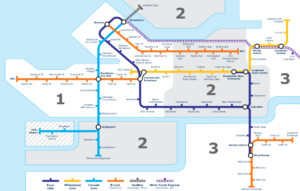
Monthly passes provide unlimited travel within the selected zones for the calendar month. They can be purchased starting on the 20th of the preceding month until the 15th of the current month. For example, a pass for March can be bought from February 20th to March 15th.
Utilizing a Compass Card with a monthly pass or stored value not only offers savings compared to cash fares but also provides seamless transfers across the transit system.
Website: www.translink.ca
Trip Planner: Use Google Maps or the Transit app.
Taxis: Traditional taxi services operate throughout Vancouver. Popular companies include:
- Yellow Cab: (604) 681-1111
- Vancouver Taxi: (604) 871-1111
- Black Top & Checker Cabs: (604) 731-1111
Ride-Sharing:
- Uber and Lyft are available in Vancouver.
- Download their respective apps and set up an account for easy booking.
Vancouver is a bike-friendly city with dedicated cycling lanes and scenic routes.
- Mobi by Shaw Go: The city’s official bike-sharing program. You can rent a bike at one station and return it to another.
- E-Bikes & E-Scooters: Companies like Lime and Bird operate rental services in select areas.
- Cost: Pay-per-use or monthly membership plans are available.
Website: www.mobibikes.ca
- Car Rentals: Companies like Enterprise, Hertz, and Budget offer short- and long-term rental options.
- Car Sharing:
- Evo Car Share: A popular service where you can rent a car by the minute, hour, or day.
- Modo Car Co-op: A membership-based service with various vehicle options.
Evo Website: www.evo.ca
Modo Website: www.modo.coop
Vancouver is one of Canada’s most walkable cities, with pedestrian-friendly streets and green spaces. Be sure to explore:
- Downtown Vancouver: Safe and accessible on foot.
- Stanley Park Seawall: A beautiful walking and cycling route.
- Granville Island: A vibrant area with markets, shops, and entertainment.
By using these transportation options, you’ll find it easy to explore Vancouver and get where you need to go efficiently. Welcome to your new home! If you have further questions, reach out to Student Services at SAE Vancouver.
Understanding Your Study Permit
International students planning to study at a Designated Learning Institution (DLI) in Canada for more than six months are required to obtain a study permit from Immigration, Refugees and Citizenship Canada (IRCC). This permit grants you permission to study in Canada for the length of your program (as specified on the permit).
It’s important to understand that a study permit is not the same as a visa. While the permit allows you to study, you may also need a separate entry document, such as an Electronic Travel Authorization (eTA) or a Temporary Resident Visa (TRV), to actually enter Canada. The specific entry document you need depends on your nationality. When you apply for your initial study permit from outside of Canada, IRCC typically issues both the study permit approval and any required visa at the same time, unless you already have a valid visa.
We strongly recommend applying for your study permit as early as possible. Processing times can vary significantly depending on where you are applying from, so early application helps ensure you can begin your studies as planned.
Applying for a study permit to study in Canada involves several key steps. Below is a comprehensive guide to assist you through the process:
Obtain a Letter of Acceptance (LOA) from a Designated Learning Institution (DLI):
- Designated Learning Institution (DLI): Ensure your chosen institution is recognized by the Canadian government.
- Application Process: Apply to the DLI and secure an official LOA, which is mandatory for your study permit application.
Acquire a Provincial or Territorial Attestation Letter (PAL/TAL):
- Requirement: Most students must include a PAL/TAL from the province or territory where they plan to study.
- Exceptions: Some students may be exempt from this requirement.
- Quebec Students: If you intend to study in Quebec, obtain a Quebec Acceptance Certificate (CAQ) instead.
Prepare the Required Documentation:
- Proof of Identity: A valid passport or travel document.
- Proof of Financial Support: Evidence demonstrating sufficient funds to cover tuition fees, living expenses, and return transportation.
- Additional Documents: Depending on your country of residence, you may need a medical exam, police certificate, or biometrics.
Submit Your Study Permit Application:
- Online Application: It’s recommended to apply online through the IRCC Portal.
- Application Fee: The standard processing fee is $150..00 CAN
- Processing Times: These vary by country; check current processing times to plan accordingly.
Provide Biometrics and Attend Interviews (if required):
- Biometrics: Some applicants need to provide fingerprints and a photo.
- Interviews: In certain cases, an interview may be requested by the visa office
Await Application Decision:
- Approval: If approved, you’ll receive a Port of Entry (POE) Letter of Introduction and, if applicable, a Temporary Resident Visa (TRV) or Electronic Travel Authorization (eTA).
- Processing Delays: Ensure all documents are complete to avoid delays.
Prepare for Arrival in Canada:
- Documentation: Carry your LOA, POE Letter of Introduction, proof of finances, and other relevant documents.
- Study Permit Issuance: The actual study permit will be issued upon your arrival in Canada.
Additional Resources:
Applying for a study permit is a critical step toward your educational journey in Canada. Ensure all requirements are met and documents are prepared to facilitate a smooth application process.
SAE Institute Vancouver is a Designated Learning Institution (DLI) approved by IRCC to accept international students. To apply for a study permit in Canada, you’ll need to include our Designated Learning Institution number.
Our DLI number is: O19330716802 (The DLI number begins with the letter “O”). Including the correct DLI number on your study permit application is essential. Your application may be delayed or rejected if this information is missing.
For more information about DLIs, visit the official Immigration, Refugees and Citizenship Canada website.
As of January 22, 2024, most international students applying for a Canadian study permit must include a Provincial Attestation Letter (PAL) with their application to Immigration, Refugees and Citizenship Canada (IRCC). This requirement applies to students studying in most Canadian provinces and territories. Applications submitted to IRCC without a PAL (unless you are exempt) will be considered incomplete and returned.
Upon admission to SAE Vancouver, we will provide you with your PAL along with your Letter of Acceptance (LOA). This will be sent to you automatically; no separate application is required from you for the PAL itself.
Once you have received both your LOA and PAL from SAE Vancouver, you can then submit your complete study permit application to IRCC.
After IRCC approves your study permit application, you will receive a Port of Entry (POE) Letter of Introduction (sometimes called a POE letter, correspondence letter, or introductory letter).
This letter from IRCC confirms initial study permit approval, but it is not your actual permit. You must show this letter to a Canada Border Services Agency (CBSA) officer when you arrive in Canada. The CBSA officer will then issue your official study permit.
While studying in Canada, you are responsible for maintaining your legal status and following all rules set by Immigration, Refugees and Citizenship Canada (IRCC). Your study permit outlines specific conditions you must meet.
- Enrolment: Maintaining full-time student status at a Designated Learning Institution (DLI) (unless authorized for part-time study). Not taking any leaves longer than 150 days.
- Progress: Making reasonable progress towards completing your program.
- Work Restrictions: Adhering to any limitations on working on or off campus.
- You must inform IRCC any time you change post-secondary schools.
- Departure: Leaving Canada when your study permit expires (unless you apply for and are granted an extension).
Failure to meet these conditions can lead to serious consequences, including losing your student status and being required to leave Canada.
Maintain your legal status as a student in Canada
If you need to extend your study permit, we recommend you submit your extension application three to four months before your current study permit expires.
To submit your study permit extension application, please check the detailed instructions from IRCC’s website Extend Your Study Permit Guide.
Once you have applied to extend your study permit before its expiry date, you are still considered a temporary resident of Canada even after the expiry date of your study permit. This is called maintained status. With maintained status, you may continue to stay and study until you receive a response from IRCC as long as you remain in Canada and continue to meet the conditions of your study permit.
Since your BC MSP will end on the expiry date of your current immigration document, you must take action to maintain health insurance coverage before your MSP expires. BC MSP announced that eligible students with maintained status may be eligible for temporary coverage for an initial six months.
For more information on how to extend your BC MSP insurance, please click here.
After you have received your new study permit, some students, depending on your home country, can apply to extend your TRV. Like a study permit extension, you can also apply for a TRV extension through your online IRCC Online Account. A TRV is issued with the same expiry date as your study permit.
If you plan to leave and come back to Canada after your current TRV expiry date, start your TRV extension process in advance. IRCC advises applicants to apply at least two months in advance of a planned departure from Canada.
Work While You Study
International students in Canada can work while studying if their study permit includes work authorization. This allows eligible students to work on-campus or off-campus without needing a separate
work permit.
The following IRCC page outlines work-off-campus rules for international students, including eligibility, hours, and restrictions.
- A SIN is required to be paid legally in Canada.
- If your study permit does not allow work, you cannot apply for a SIN until you update your permit.
- You must be physically in Canada to apply for a SIN. You can apply:
- Online, once you arrive and have your valid study permit
- In person at a Service Canada Centre
- By mail, if required
- A valid study permit stating that you are allowed to work.
- Enrolment in a full-time program at a designated learning institution (DLI).
- Valid Passport
- Proof of residence (if applying by mail)
Once approved, you’ll receive your SIN immediately (in person) or within a few business days (online/mail).
- On-campus: No hour restrictions.
- Off-campus: Up to 20 hours per week during regular academic terms and full-time during scheduled breaks.
Looking For Work
Balancing work and studies in Canada can be a valuable experience. Here’s a step-by-step guide to help you navigate the job search process, from exploring opportunities to securing employment.
Explore Your Options
- On-Campus Opportunities: Due to the small size of SAE Vancouver, on-campus job opportunities are limited. However, students can check with student services, the career center, or job boards for available opportunities. These roles, when offered, are specifically for students and provide a convenient way to gain experience.
- General Job Boards and Websites: Numerous online job boards and websites cater to students and recent graduates. Popular options include:
- Networking: Networking is crucial. Attend career fairs industry events, and connect with people in your field. Inform your professors, classmates, and friends that you’re looking for work.
- Your Institution’s Career Services: SAE Vancouver offers career counselling, resume advice, and job search assistance. Take advantage of these resources!
- Company Websites: If you have specific companies in mind, visit their websites directly to see if they have any open positions.
- Resume and Cover Letter: Tailor your resume and cover letter to each specific job you apply for. Highlight your skills and experience, even if it’s volunteer work or extracurricular activities. Get feedback on your resume from your institution’s career services or a career counsellor.
- References: Have a list of references ready to provide to potential employers. Ask professors, previous employers, or volunteer supervisors if they’d be willing to be a reference for you.
- Portfolio (If Applicable): If you’re in a creative field, have a portfolio of your work ready to share.
- Networking Skills: Practice your networking skills so you can confidently introduce yourself and make connections at events.
- Interview Skills: Prepare for interviews by researching common interview questions and practicing your answers. Dress professionally for interviews.
- Communication Skills: Strong communication skills are essential for both written and verbal communication.
- Apply Online: Most job applications are submitted online. Follow the instructions carefully and ensure all your documents are complete.
- Follow Up: After applying, it’s a good idea to follow up with the employer to express your continued interest.
- Be Patient: Finding a job can take time, so be patient and persistent. Don’t get discouraged if you don’t hear back from every application.
- Stay Organized: Keep track of the jobs you’ve applied for and the status of your applications.
- Continue Learning: Use your job search time to develop new skills or gain experience through volunteering or online courses.
- Study Permit Conditions: Remember that your ability to work is tied to your study permit status. Maintain full-time student status (unless authorized for part-time) and adhere to any work-hour restrictions.
- Social Insurance Number (SIN): You will need a Social Insurance Number (SIN) to work inCanada. You can apply for a SIN after you arrive in Canada and have a valid study permit. Apply for a SIN here.
- Tax Implications: Understand the tax implications of working in Canada. You will need to file a tax return each year. More information is available on the Canada Revenue Agency (CRA) website. You can also refer to the Tax Guide for International Students.
- Know Your Rights: As an international student worker, you are protected under Canadian labour laws. Learn about your rights, including fair wages, workplace safety, and protection against discrimination. Visit the following Provincial and Federal websites to understand your rights:
- Government of Canada’s Workplace Standards
- Employment Standards, Province of British Columbia
- When you start your job, some of the things your employer must do are:
- Give you a written employment agreement.
- Not charge you a fee for giving you a job.
- Pay you at least the minimum wage.
- Give you paid rest breaks and unpaid meal breaks.
- Ensure you receive your minimum entitlements for public holidays.
- Not take money from your wages unless it is for a lawful purpose, is reasonable, and you have agreed to it in writing.
- Provide a safe workplace.
- Not discriminate against you.
- Treat you fairly and with respect.
- Start your job search early—competition can be high.
- Focus on student-friendly jobs (close to campus, retail, hospitality, customer service).
- Improve your English or French skills to increase your job prospects.
- Build a LinkedIn profile to connect with employers.
- Always be professional in applications and interviews.
Finding a job in Canada as an international student takes effort and preparation, but it’s definitely achievable. By following these tips and utilizing the resources available to you, you can increase your chances of success
Mental Health & Well-Being
Moving to a new country can be both exciting and challenging, bringing a mix of stress and adjustment. At SAE, we are dedicated to fostering a supportive learning environment where students can succeed. As an international student, prioritizing your health and well-being is essential as you settle into life in Canada and begin your studies.
Moving to a new country brings both excitement and challenges. During this transition, students may experience culture shock at different stages, which is a natural part of adapting to a new environment. Everyone adjusts at their own pace, and it’s important to prioritize self-care throughout the process. Developing healthy habits and seeking support when needed can make a significant difference.
- Here are some general tips to help maintain well-being:
- Ensure you get enough sleep each night
- Eat balanced meals at regular times
- Set limits on screen time
- Stay connected with family and friends
- Engage in regular physical activity
- Spend time outdoors for fresh air
-
Reach out to trusted individuals or professionals for support
Balancing school, work, and personal responsibilities can bring various stressors into daily life. Experiencing stress is a natural response, helping us adapt and build resilience over time. Each time we manage stress effectively, we strengthen our ability to handle future challenges.
Stress isn’t always negative—it can motivate and drive productivity. However, excessive stress can lead to burnout, anxiety, or panic, while too little can result in lack of focus and motivation. Developing resilience allows us to navigate setbacks and restore balance. Recognizing signs of stress and taking proactive steps to manage it is essential for overall well-being.
Here are some effective ways to cope with stress:
- Practicing calm breathing exercises
- Cultivating gratitude
- Practicing self-compassion
- Staying connected with your community
A well-balanced diet plays a crucial role in maintaining energy levels, supporting mental clarity, and promoting overall well-being. Eating nutritious meals regularly can help manage stress, enhance concentration, and improve mood.
Tips for healthy eating:
- Incorporate a variety of fruits and vegetables into your meals
- Choose whole grains and lean proteins for sustained energy
- Stay hydrated by drinking enough water throughout the day
- Limit processed and sugary foods to avoid energy crashes
- Plan meals ahead to ensure balanced nutrition even during busy times
Regular physical activity is essential for both physical and mental health. Exercise helps reduce stress, improve mood, enhance focus, and promote better sleep. Engaging in physical activities can also be a great way to explore your new surroundings and meet new people.
Ways to stay active:
- Walk or bike to nearby locations instead of taking public transport
- Join a local gym or fitness class
- Participate in outdoor activities like hiking, jogging, or yoga
- Find sports or recreational groups within your community
- Incorporate short stretching or movement breaks during study sessions
The following crisis and information lines are open seven days a week during the times listed. All the lines will take calls from anywhere in the Lower Mainland.
Heretohelp: 310-6789 (do not add 604, 778 or 250 before the number). It’s free and available 24 hours a day.
Here2Talk connects post-secondary students with mental health support 24/7 via app, phone and web. All students currently registered in a post-secondary institution have access to free, confidential counselling and community referral services.
- Canada-wide toll-free, dial: 1-877-857-3397
- Canada-wide direct, dial: 604-642-5212
BC Suicide Prevention and Intervention Line: 1-800-784-2433 (24 hours/day)
Greater Vancouver: 604-872-3311(24 hours/day) Fraser Health Crisis Line: 604-951-8855 or 1.877.820.7444 (24 hours/day) BC Alcohol & Drug info line: Confidential information and referral services to British Columbians in need of support with any kind of substance use issue (alcohol or other drugs). | 1.800.663.1441
Land Acknowledgment & Indigenous History of Canada
SAE Institute Vancouver acknowledges that our campus is located on the traditional, ancestral, and unceded territory of the Musqueam, Squamish, and Tsleil-Waututh Nations. As part of our commitment to reconciliation and respect, we encourage our students—especially those new to Canada—to learn about the history, cultures, and contributions of Indigenous Peoples.
A Brief History of Indigenous Peoples in Canada
Indigenous Peoples have lived on this land for thousands of years, with diverse cultures, languages, and traditions that continue to shape Canadian society today. There are three recognized Indigenous groups in
Canada:
- First Nations – The original inhabitants of much of what is now Canada, with over 600 nations and 50+ distinct languages.
- Métis – A distinct Indigenous group with mixed First Nations and European ancestry, primarily found in the Prairies.
- Inuit – Indigenous peoples of the Arctic regions, known for their resilience and unique traditions in the North.
The arrival of European settlers in the 15th century led to profound and lasting effects on Indigenous communities. Colonization brought displacement, forced assimilation, and policies such as the Indian Act and Residential Schools, which aimed to erase Indigenous cultures and languages. These schools, operating from the 1800s to the 1990s, were government-funded and church-run institutions where
Indigenous children were forcibly removed from their families and subjected to abuse and neglect. The legacy of colonization continues to impact Indigenous communities today, but through resilience, advocacy, and cultural revival, Indigenous Peoples are reclaiming their histories, traditions, and rights. The Truth and Reconciliation Commission of Canada (TRC), established in 2008, outlined 94 Calls to Action to address past injustices and promote reconciliation.
Vancouver is home to a vibrant Indigenous community, with cultural centres, businesses, and events that celebrate Indigenous heritage. Students are encouraged to explore Indigenous-led initiatives such as: The Bill Reid Gallery of Northwest Coast Art – Showcasing Indigenous art and storytelling. The Vancouver Indigenous Fashion Week – A platform for Indigenous designers and artists. The Talking Stick Festival – An annual festival highlighting Indigenous performing arts.
As a student in Canada, it is important to recognize and respect Indigenous cultures. This includes:
- Acknowledging the land and its original caretakers.
- Engaging with Indigenous perspectives in education and the arts.
- Supporting Indigenous businesses, artists, and community initiatives.
By learning about Indigenous history and contributions, we contribute to a more inclusive and respectful community at SAE Institute Vancouver.
For more information, visit the First Peoples’ Cultural Council or the National Centre for Truth and Reconciliation.


